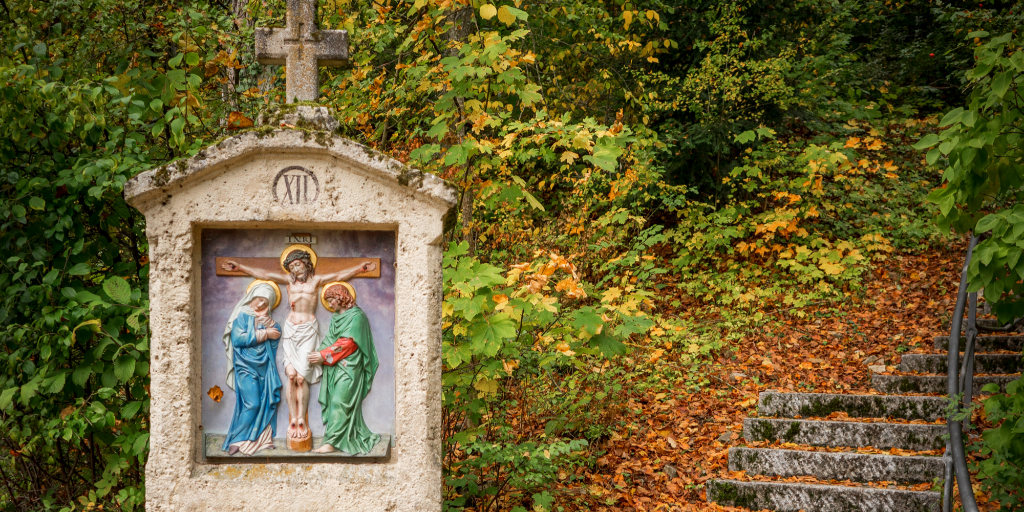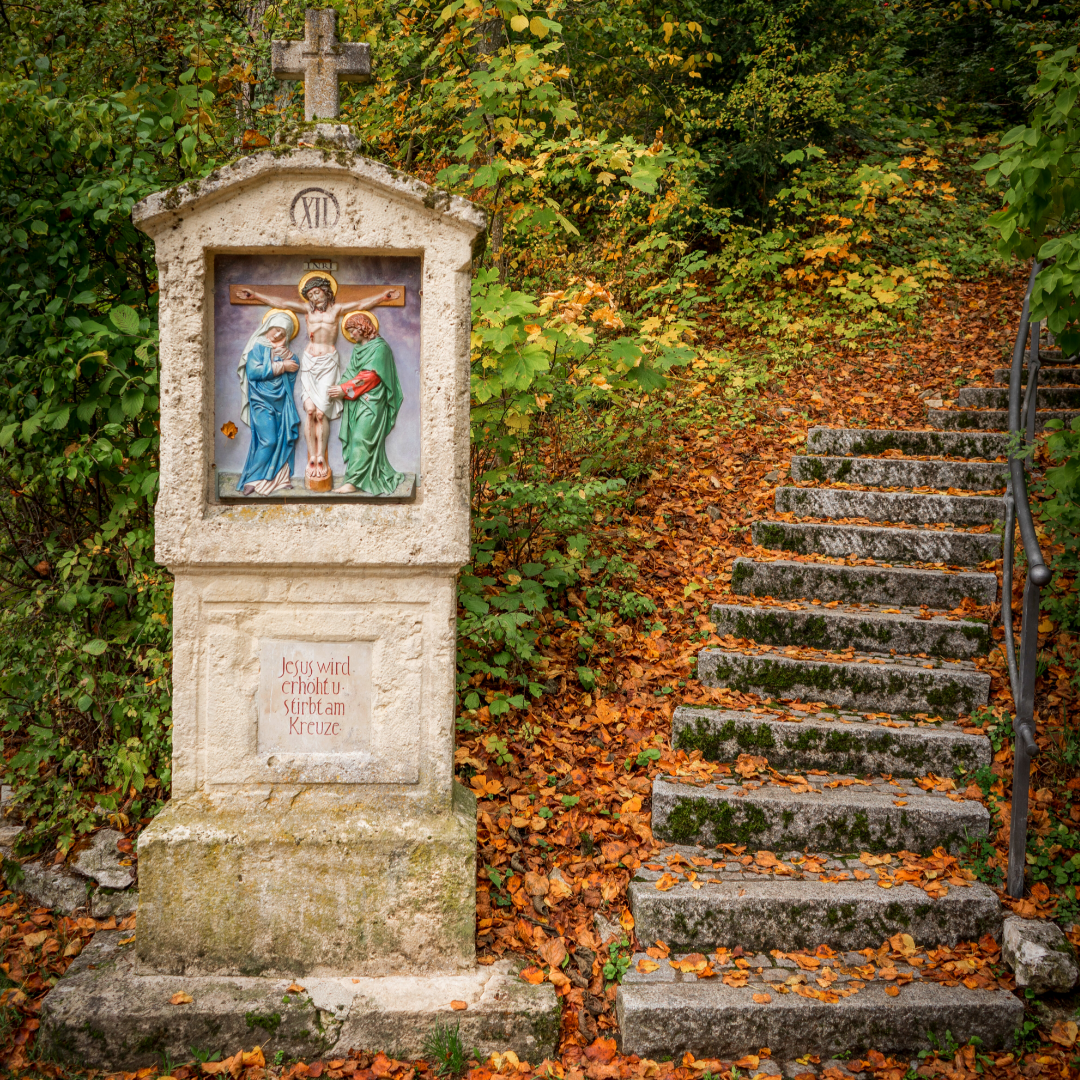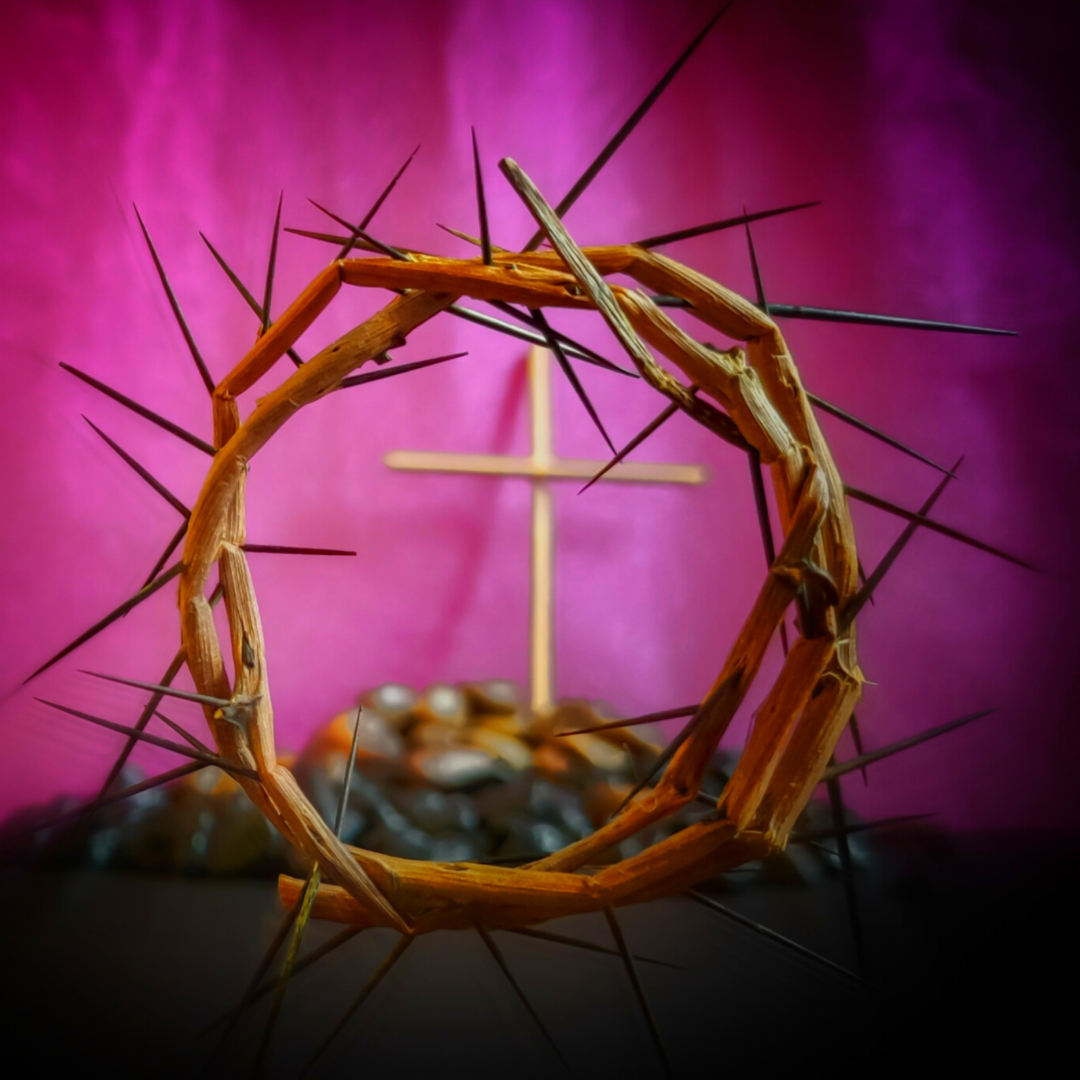
Lindsey Mitzel contemplates the idea of dying to self that is central to our observance of Lent.
I’ve always loved getting packages in the mail. I love that feeling of anticipation while waiting for a package to arrive and the surprise and delight of finding an unexpected package in the mailbox or on the doorstep. As a child, it was a rare treat to receive a package, and it only made the experience more special. Back then I couldn’t make a package appear for me in the mail. However, with the advent of two-day and same-day shipping, as an adult, I can find that “perfect” solution to my baby’s sleeping problems and receive it immediately.
Rather than having to sit in my sleep-deprived discomfort for 6-7 days, I’m now provided an easy fix. Except that it isn’t really easy, right? My longed-for, anticipated package arrives at 10 PM the same day it’s ordered and I excitedly rip it open, sure it will allow me a dreamless sleep.
But false advertising: it doesn’t. It simply becomes the “next best thing”: the next item I offer up at a garage sale. It’s not actually possible for me to prevent my suffering, but how tempting it is to make an idol of just that.
In the first reading for today, Moses is exhorting the Israelites to follow the Lord and not to stray away from Him. He urges them to keep the commandments and “walk in [God’s] ways” to be blessed (Deuteronomy 30:16). However, if they turn their hearts away from God, are led astray and begin to serve other gods, they “will certainly perish” (Deuteronomy 30:18). Moses ends his fiery speech with this heart-stopper:
“I have set before you life and death, the blessing and the curse. Choose life, then, that you and your descendants may live, by loving the Lord, your God, heeding his voice, and holding fast to him. For that will mean life for you." (Deuteronomy 30:19-20)

What a paradox, then, that the Gospel tells us if we want to save our life, “we will lose it,” but if we lose our life for Jesus’ sake, “we will save it” (Luke 9:24). Moses is imploring the Israelites to discard their idols and live according to the laws God gave to Israel through Moses, while Jesus is elevating this appeal to a sacrificial response. A rich young man encounters Christ and asks what he can do to inherit heaven. Jesus tells him to keep the commandments. The young man responds that he has kept all these commandments. Jesus then tells him,
“Go, sell what you have and give to [the] poor, and you will have treasure in heaven. Then come, follow me.” (Matthew 19:16-21)
On the one hand, Moses is beseeching the Israelites to literally burn their idol statues that they carried with them out of Egypt. After having lived in Egypt for hundreds of years, the faith of Israel must have very understandably been mixed up with the Egyptians’ way of thinking, living, and worshipping. It is very hard to live in the world but not of the world. Jesus, on the other hand, is elevating the commandments to include more than the physical observation of each faithfully. The rich young man did not have any idols in his keeping; however, he left Jesus sadly because he had many possessions (Matthew 19:22). His riches had become an idol in his heart.
In the Gospel for today Jesus encourages,
“If anyone wishes to come after me, he must deny himself and take up his cross daily and follow me.” (Luke 9:23)

In her wisdom, this is what the Church invites us to enter into more fully each year during Lent. We pray, fast, and give alms in order to help break us of the very idols we’ve acquired from living in the world. We pray the Stations of the Cross to walk with Jesus on the road to Calvary. During Holy Week we read the events leading up to and including Christ’s Passion. We are given the opportunity to walk closely with Christ, to recline at His breast, wash His face, kneel by the Cross, and even receive His limp and broken body into our arms. All this to train us away from our gods, to break our idols of self and lead us back again to Jesus.
Jesus tells His disciples in the Last Supper Discourse that He is the Way, the Truth, and the Life (John 14:6). There is no life apart from Him (John 15:4). Choosing to deny ourselves in fasting can be very painful, yet the freedom that results is powerful. Idols enslave us to the idea that life is a drudgery, disappointing, depressing, like death. Christ exposes the lies and sets us free when we turn away from our sin and begin to follow him again.
Yesterday, death was set before us as we were reminded of our mortality: “Remember, you are dust, and to dust you shall return.” Today, we can choose life through spiritual death to ourselves, rising again with Christ.
This Lent, make it a point to choose the way of the Lord in the small decisions that you face as well as the big ones. You may not always get it right. You may even experience humbling failures at times. But you can be sure that every time you make the effort, the Holy Spirit unleashes a flow of grace to help you and strengthen you. (in The Word Among Us, March 10, 2011)

Copyright 2023 Lindsey Mitzel
Images: Canva
About the Author

Lindsey Mitzel
Lindsey Mitzel is a nurse practitioner and mom to six littles. When not homeschooling or driving her kids to various places, she enjoys gardening, hiking, and running. Lindsey appreciates dry humor, a good pun, and coffee. You can read more about her at Eight and a Half Months. Lindsey also occasionally writes for Be Love Revolution's Tiny Thoughts blog.


.png?width=1806&height=731&name=CatholicMom_hcfm_logo1_pos_871c_2728c%20(002).png)
Comments